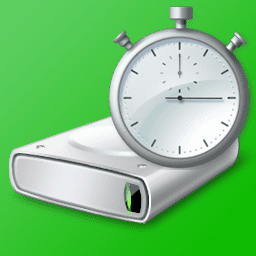
CrystalDiskMark Download
CrystalDiskMark is a free storage benchmarking tool for Windows and Linux designed by Crystal Dew World.
Software details
Software Description
CrystalDiskMark allows users to implement hardware tests to keep track of performance. The number of tests that can be performed is fully at the user’s discretion. As the tests are performed, CrystalDiskMark sequentially monitors reading and writing capabilities. This tool will also calculate your storage space to determine how much space is needed. Once the tests are complete, you can determine possible threats and bottlenecks. If anything is detected, you have the ability to replace the disk.
This tool measures the performance of the following:
- Storage device
- SSD
- Flash memory
- HDD
- Dash cams
It is crucial to have a quality storage device tester due to the amount of fraud going on. The industry has been flooded with fake memory cards. CrystalDiskMark is the best tool to perform tests. Unfortunately, Amazon and other marketplaces openly sell fake items that can do a lot of harm to your computer. Always use a high performance tool like CrystalDiskMark to test performance. Users will be taken to a zip folder. You will have the opportunity to choose between the 32 and the 64 version. (Be sure to check which you need before you download.) The download should take only a few minutes to complete. Be sure to monitor the read and write speed. Warning: If the results are significantly different to your memory card’s numbers, there is a high probability that your memory card is either fake or defective.
Features
- Ability to test the external drives of the computer
- The software is free to download
- The program allows for a multitude of tests.
- For high-performance drive testing, a PCIe feature is installed.
- Different themes are supported
- Supports different languages
- It has the most popular tools
- The best tool for high performance tests
There are some updates to the CrystalDiskMark that users will be excited about:
- Bugs that interfere with key functions have been fixed.
- The SanDisk/WDC support has been fixed.
- Added RECADATS support has been added.
Pros And Cons
Pros:
- The tool is durable
- It is very fast.
- The tool is free to download
- The software is disk benchmark
- Performs great low que reads
Cons:
- Downloads can be choppy
- Can be hard to uninstall
- Does not support all Windows applications
System Requirements
CrystalDiskMark works with the following:
- All Windows systems, including XP, VISTA, 7, 8, 8.1, and 10
- Windows servers 2003, 2008, 2012, 2016, 2019
- The program will not work on Windows 95 to 2000.
If you need a reliable storage and durable software reader, CrystalDiskMark ranks very high. Users give it solid marks in all of the categories that really count. The bottom line is, this program performs all of the crucial testing you need to keep your hardware safe and secure. Additionally, CrystalDiskMark puts out the important information you need to monitor your program’s performance. You can see everything in real time. So, you can tell if your hard drive is losing power or malfunctioning. The test results will help you understand how to proceed.